Yoga, meaning “union”, is more than a physical practice, it incorporates a mental and spiritual core. Studies have proven Yoga to have cognitive function benefits including inhibitor control and overall promote a healthier well-being. It is said that we are born with yoga, but our modern world has us so preoccupied that we are at a loss with harmony. Our current fast-paced world often leaves the kids feeling exhausted and burdened from multiple activities that they’re exposed to –competitive sports, cultural events and incessant lessons to name a few, involve physical, emotional and social conflicts. How can yoga help, you ask? Well, read on!
Learn the Right Breathing Techniques
Pranayama or breathing lies in the heart of yoga. It is the cultivation and manipulation of prana, also known as “energy” or “life force” through an array of exercises. A balanced breath depends on your state of feeling and the frequency of your breath. In a minute an average person breathes about sixteen to seventeen times. When you’re extremely upset it may go up to twenty-five, whereas when you’re happy it reduces to ten. The more balanced your state of mind is, the more balanced your breath. It is also considered the highest form of purification in hand with various asana (poses).
Yoga gives children an opportunity to learn the right breathing techniques early on in life. Overtime, it affects their emotional stability positively. Breathing also makes them more aware of their inner being and their surroundings.
Enhance their Flexibility
It’s a misconception that one needs to be physically fit or flexible to practice yoga, in fact, the contrary holds true. The more yoga one practices the more flexible their body becomes; the poses that yoga incorporates are designed to do exactly that. These poses make children stretch the different muscle groups in their body, enhancing their strength, balance, and motor skills. They become aware of their body and feel a sense of responsibility towards caring for it. Yoga with its poses not only helps them balance externally with their bodies and senses but also internally with their thoughts and emotions while strengthening their immune system through and through effectively.
Improve Concentration
The need to achieve any yoga pose correctly makes your child strive harder each time. This enables them to concentrate and stay calm to be able to balance themselves. As a result, they are naturally inclined to concentrate in other aspects of their everyday lives like getting better grades or learning to play a musical instrument. Their emotional stability also increases with long-term practice.
Live in Harmony
Practicing yoga on a daily basis teaches your child to live in harmony because it makes them more aware. The awareness that they inculcate teaches them core values like honesty, non-harm, and gratitude. They appreciate more and whine less. They learn self-reliance because yoga is experienced solely. Yoga also in stills confidence as they accomplish each pose, and substantially takes away the fear of failure. They learn to be brave, feel compassion towards all beings, and learn the meaning of happiness and peace from experiencing it within.
Beneficial for Kids with Special Needs
Yoga is beneficial for all kids and adults alike but especially beneficial for kids with special needs. A research at a public school concluded that Yoga was particularly helpful in reducing aggressive behavior, hyperactivity and social withdrawal in kids with ADHD and autism. Yoga produces a positive impact on kids with cerebral palsy by improving their mobility, digestion and overall strength, also reducing anxiety in kids experiencing disabilities. Children with Down Syndrome also benefit from this practice on multiple levels. There are specialized yoga trainers that specifically work alongside children with special needs; and their programs are designed such wherein different poses are implied for different needs. It is an empowering experience for the kids because they start at their current level of functioning and gradually move forward towards achievable goals.
Makes Learning Fun
Teaching yoga to children clearly differentiates from teaching it to adults. How do you explain to them the essence of discipline and the practice, and in a way that would keep them interested? Simple! Don’t use the same approach. Kids enjoy yoga when you show them a new way to perceive our world. As I mentioned earlier, we are born with yoga. Kids possess innate intelligence, eight that are acknowledged by science, and it’s our job to honor that and nurture it;yoga being a fun way for kids to develop this intelligence. Yoga for kids is devised to integrate storytelling, music, and games to make it a wholesome experience for your kids. This means not enforcing the “right” way on them, but letting them explore the world of yoga on their own. One way is to let them assume the role of animals, trees, and other elements of nature. This makes it a fun experience for them to carry out different poses. They roar like a lion and feel strong, or try to stretch like a snake and imagine what it feels like to not have limbs. They empathize with nature itself, from its macro to its micro state and learn to respect it.
Teaching yoga to kids also teaches you a thing or two. You learn to let go of your “perfectionism” and embrace their natural sense of wonder. You create your own little space with the kids learning to create, explore, and grow together in a similar frequency. You gain as much as you give, and as a bonus– experience tons of fun! The next time you come across yoga, consider signing-up you and your precious one for a limited or longtime program; because what’s better than experiencing mindfulness together, am I right? Happy Parenting!
Does your kid practice Yoga? If not, what are the other physical activities that they practice? What are the positive effects that you have noticed because of these activities? Share with us your experiences in the comments below.



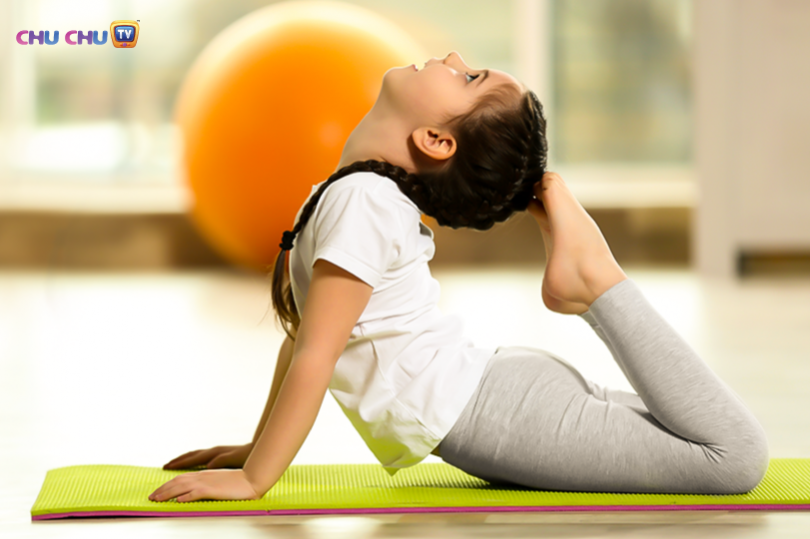
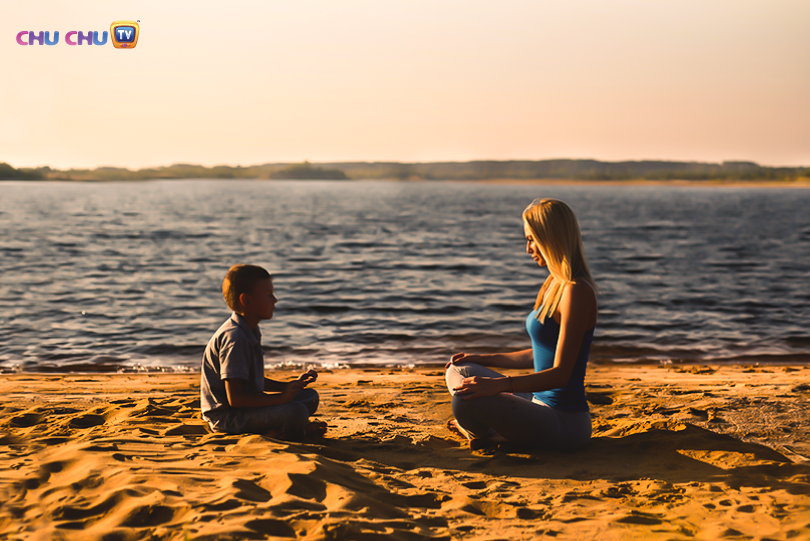
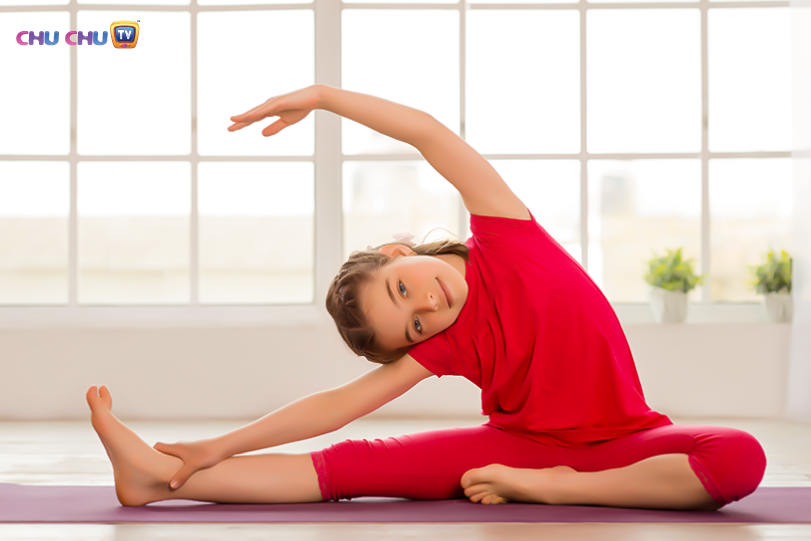
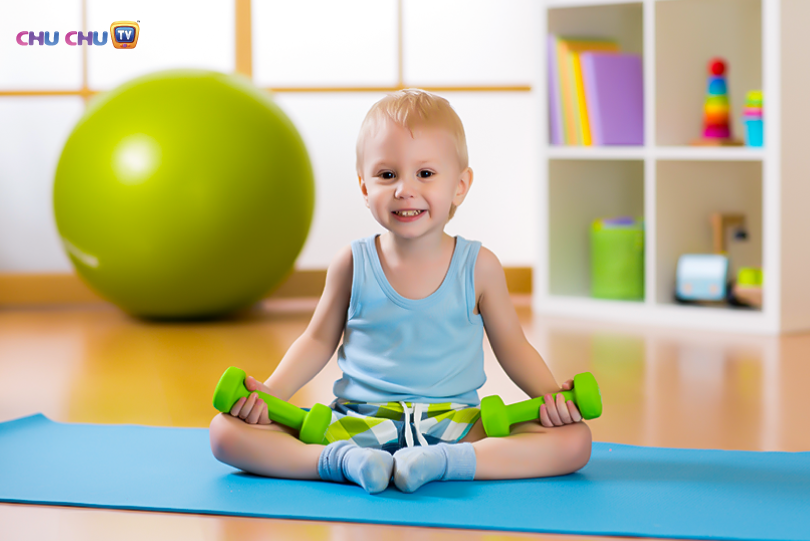


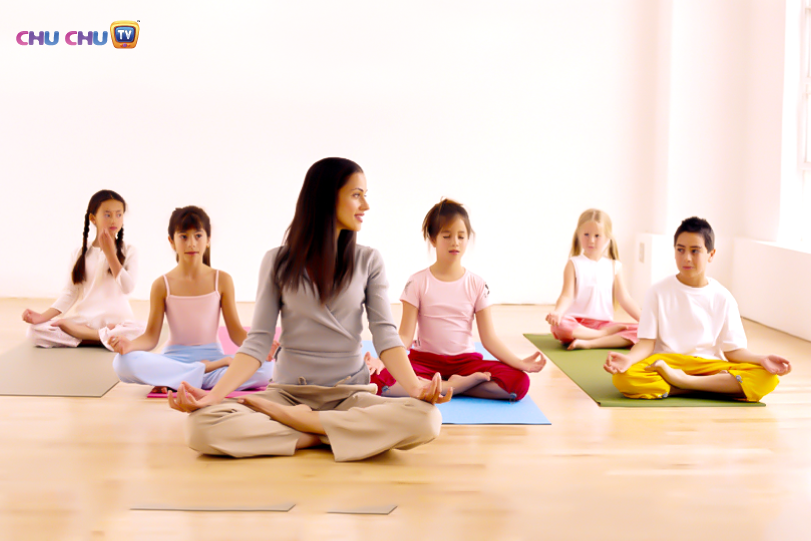






Leave a Comment